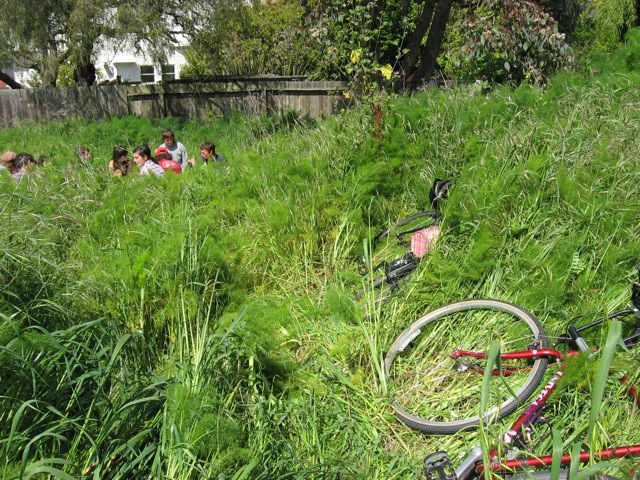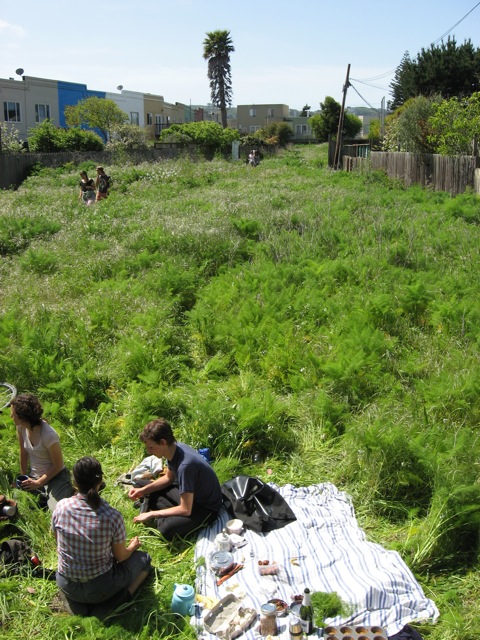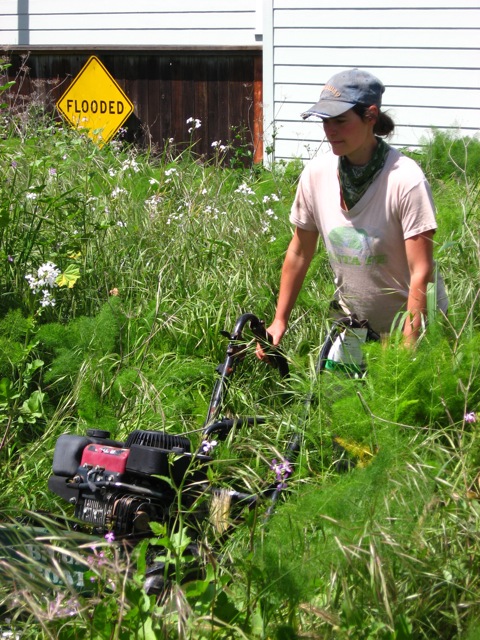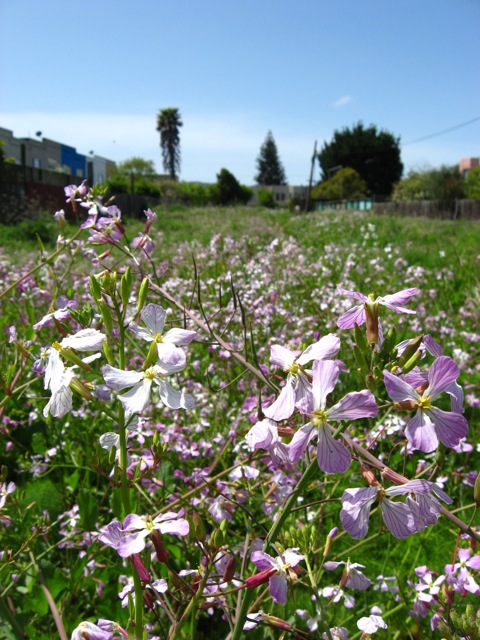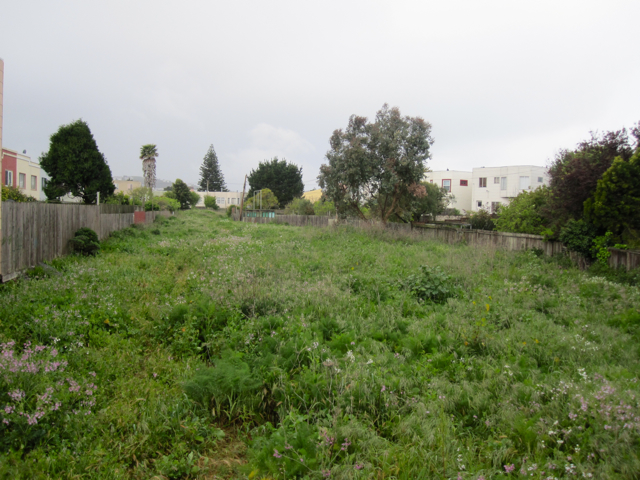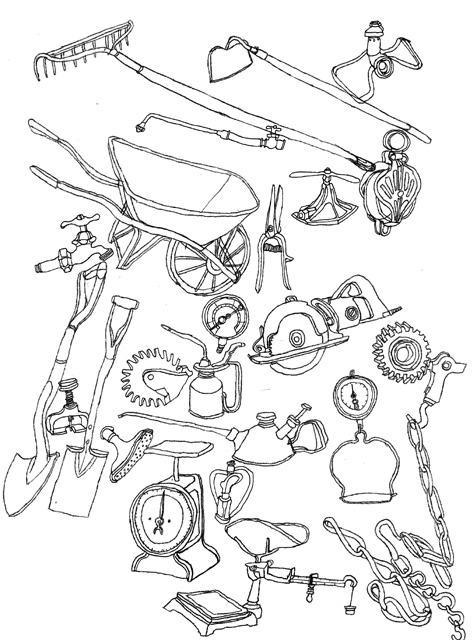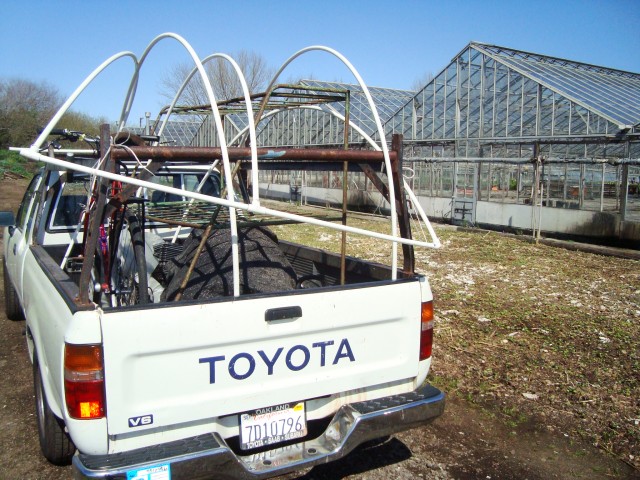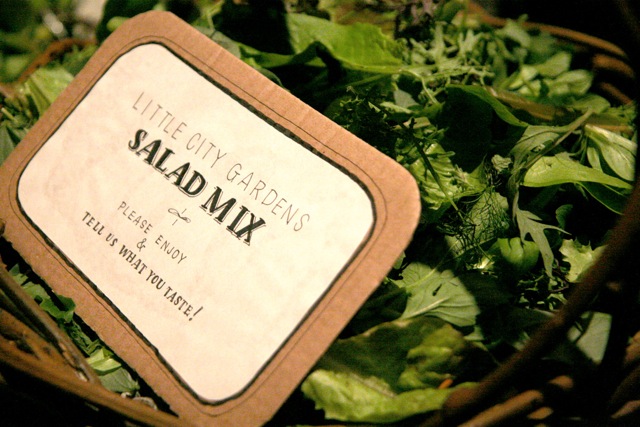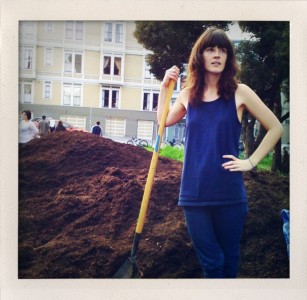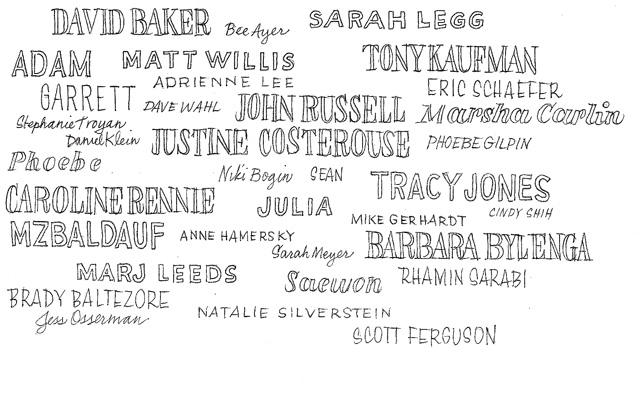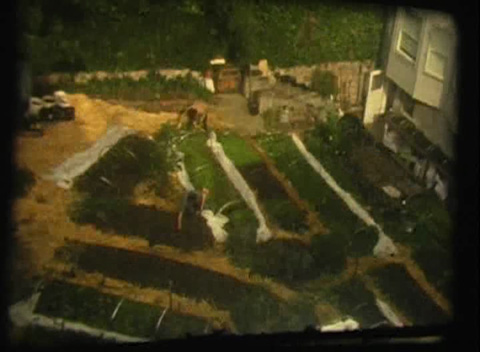farm beginnings
April 23rd, 2010 by caitlynThings are moving along! We had our first workday at the new site this weekend, and we were joined by a few good friends for a celebratory breakfast picnic to start things off. It was a warm, beautiful morning to be tucked away, clinking our tea mugs together, hidden amongst the weeds that come up to our shoulders. We toasted to our collective work so far, and to the possibilities that lie ahead.
The workday was a success, too. Despite some tools that were in less-than-great repair, we were able to mow down about 1/4 of the weeds in one day. There was fennel galore, wild radish, plantain, wild oats, mallow, crab grass and, fortunately, not much oxalis or calla lily – the two most pervasive weeds we deal with at our other garden. We’re off to a great start.
We’re also learning some things. As we proceed with this project, we’re becoming increasingly aware of the complex challenges of doing this kind of work in a densely populated city. Undeveloped space here is competitive and hard to come by, and all of us neighbors have a wide range of needs and priorities for the open space that does exist. The majority of our neighbors have been incredibly supportive of our ideas – coming to community meetings to show support, volunteering to help at the garden, offering their nearby garage space for tool storage, and expressing overall excitement and cheer to see the activation of this vacant weeded lot. However, we’ve also had a couple neighbors express some concerns that this project will bring excessive traffic and spectacle to their quiet neighborhood, that a market-garden business does not belong in a residential neighborhood, or even that the use of pesticides (yikes!) on our crops will be harmful to their health. (We aren’t going to use pesticides, of course, and we wrongly assumed that that was a given.)
It’s a complicated web, this city of neighbors, and we’re learning how important communication is going to be through this entire process. We don’t know if we will be able to please everybody but we intend to stay as open to feedback and concerns as we are to encouragement and support.
Thanks to Eli Zigas for photos.

